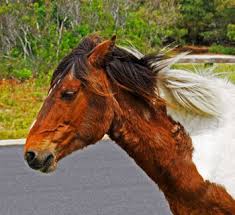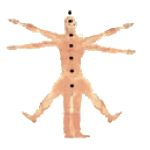There Must be a Pony
 The first time I heard it sung was in my living room. We gathered around our black and white set to see the first black man in America with his own TV show. When Nat King Cole walked on stage his face was compelling to look at. I could not take my eyes off of that face. But his voice was something else. And when he sang that song Smile, even then, as young as I was, I felt the poignancy of the words to this song coming out of this man’s mouth.
The first time I heard it sung was in my living room. We gathered around our black and white set to see the first black man in America with his own TV show. When Nat King Cole walked on stage his face was compelling to look at. I could not take my eyes off of that face. But his voice was something else. And when he sang that song Smile, even then, as young as I was, I felt the poignancy of the words to this song coming out of this man’s mouth.
Smile though your heart is aching, smile even though it’s breaking.
Kids have amazing crap detectors. They can sniff out authenticity or phoniness in a second. This man seemed like the real deal to me. He knew what he was singing about. I loved that song.
The second time I heard that song sung in a way that deeply impacted me was after they rolled me into my room after surgery. The operation was to finish what got started on Randall Avenue; after five hours, the surgeons removed my left leg below the knee.
The room was dark with just a dim light over my bed and light coming in from the hallway. I came out of the anesthetic briefly. There was enough light to make out my father and my Uncle Tommy standing in the doorway.
My father standing there with his blue eyes smiling, covering up the tears, making his way over to the bed to pat my head, kissing me softly to comfort me somehow. I could feel his hesitancy. How do you comfort a kid that just lost her leg – especially when you were the one driving? I thought for a second, “I wonder where my mother is?” But even then I figured she was somewhere else where somebody was comforting her.
Then my Uncle Tommy came over to the bed. He leaned down to kiss me, giving me what my sister and I had come to call an ‘Uncle Tommy kiss.’ Somehow when Uncle Tommy kissed you he ended up getting your whole face wet, like you were just kissed by a dog. He didn’t know what to say either. Then all of a sudden he looked into my eyes and started singing:
Smile though your heart is aching
Smile even though it’s breaking
When there are clouds in the sky, you’ll get by
If you smile through the fear and sorrow
Smile maybe tomorrow
You’ll see the sun coming thing through if you just smile…
He sang the whole song to me as I drifted off to sleep with the lyrics acting as a post-hypnotic suggestion. Thus the stage was set for me to comfort them, to reassure them, to pretend for them and myself that I was fine even when I wasn’t. To smile when my heart was breaking. I was nine years old and the spell that those lyrics cast was so strong that I didn’t cry once over losing my leg, not until I was twenty-eight years old.
On the other hand, with my philosophy of life being, “There must be a pony underneath all this shit,” it also set the stage for me to grow up quickly and be really good at what I do.
Trauma can break you open in a way like no mystic can, and I had been given a front row seat, that I could not leave. Trauma is unlike other spiritual paths, where you can step back if it gets too intense. I had to stay in my seat.
What had been defined as a given in my life, changed in one car ride home. All points of reference changed as I scurried to find my equilibrium, my normalcy, and my family tried to find theirs. We never seemed to do it in the same room or the same way, and yet the longing to cling to what was familiar remained.
Through that clinging I got to know trauma intimately and all the ways it could intrude into my life when I least expected it. Such as the need to push down the feelings, trying to make it all better some how. The panic and anxiety that seemed to come out of nowhere. The hyper-vigilance and hyper-arousal that kept my nervous system on edge. The multitude of physical symptoms physicians can’t seem to diagnose due to being in a fight, flight or freeze mode. These are just a few of the intrusive symptoms of trauma.
“They are wise beyond their years,” is a phrase you often hear when adults talk about a child who has survived the unsurvivable and appears to be balanced and intact. I know the cost of that ‘wisdom.’ I cringe when I hear an adult talking about children that way. I hear the relief that it often implies: “Thank God, so I don’t have to deal with it.”
As Carl Jung taught, “Only the wounded physician heals,” my trauma taught me to understand all of it’s nuances, to heal enough from it to be able to sit in it’s presence when it speaks to me through my client’s pain, saying, “I live here too.”
We have all been affected by trauma, and what we often don’t realize is how trauma has a profound effect on our life choices.
I work with adults and children who are beginning to understand the ramifications of intrusive symptoms of trauma with which they have been living.
If you are facing a challenge at this point in your life, I’m real good at finding the pony.
